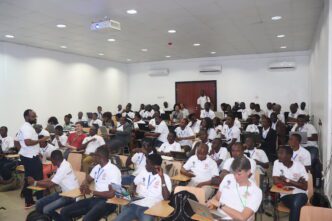Liam Fedus, OpenAI’s Vice President of Research for post-training, has officially announced his departure from the AI powerhouse to launch a new materials science startup powered by artificial intelligence. This move positions him at the forefront of a fast-growing sector where AI is rapidly transforming scientific research.
The story was first reported by The Information and later confirmed by Fedus on X (formerly Twitter). In his statement, Fedus shared additional details about his motivation and the role OpenAI will play in supporting the new venture.
Blending Physics and AI: Fedus’ Bold Vision
Fedus, who holds a physics degree, expressed his long-standing interest in applying AI to scientific discovery.
“My undergraduate degree was in physics, and I’m eager to bring AI advancements into that space,” Fedus stated. “AI for science is one of the most strategically important areas for OpenAI and vital for achieving artificial superintelligence. OpenAI plans to invest in and collaborate with my new company.”
His comment reflects OpenAI’s broader strategy to expand AI’s role in driving scientific breakthroughs. As AI systems grow more capable, their applications in fields like materials science, healthcare, and energy are becoming increasingly significant.
Entering a Competitive AI Materials Science Arena
Fedus’ new startup will face stiff competition from tech giants like Google DeepMind and Microsoft, both of which have already made significant strides in AI-driven materials research.
In 2023, DeepMind unveiled Gnome, an AI system designed to identify new crystals that could revolutionize material creation. The system’s ability to explore previously untested combinations of elements showcased how AI can speed up discovery in areas like renewable energy, electronics, and advanced manufacturing.
Not to be left behind, Microsoft recently launched two AI-powered tools—MatterGen and MatterSim. These cutting-edge tools are designed to assist scientists in discovering and testing new materials faster and more efficiently. By simulating material behaviors, Microsoft hopes to reduce research costs and accelerate the commercialization of innovative materials.
AI’s Role in Scientific Discovery: Promise and Pitfalls
While excitement around AI-driven scientific discovery is growing, some experts remain cautious about the technology’s limitations. Many argue that while AI excels at pattern recognition and data analysis, it still falls short in generating entirely novel scientific theories or discoveries.
Skeptics believe that scientific breakthroughs require a blend of human creativity, intuition, and hands-on experimentation—areas where AI still lacks depth. However, proponents argue that AI’s ability to sift through vast datasets and spot hidden patterns makes it a game-changer for accelerating scientific research.
As AI models continue to improve, their role in hypothesis generation and experimental design could increase, making them indispensable tools for researchers worldwide.
What’s Next for Fedus and His AI Materials Startup?
Backed by OpenAI’s investment and strategic support, Fedus is well-positioned to make his mark in the AI-driven materials science space. Although his startup’s name remains undisclosed, early indications suggest a focus on AI-powered materials discovery, simulation, and innovation.
The startup’s mission will likely center on predicting material properties, modeling complex chemical interactions, and uncovering novel materials for applications in energy, manufacturing, electronics, and beyond.
This development also highlights a broader trend—leading AI researchers are now venturing into scientific fields that demand real-world impact. By merging AI expertise with scientific inquiry, Fedus hopes to help unlock new materials that could transform industries and solve some of the planet’s most pressing challenges.
As the race to harness AI for materials science intensifies, all eyes will be on Fedus’ venture to see how it reshapes the future of innovation and scientific discovery.












